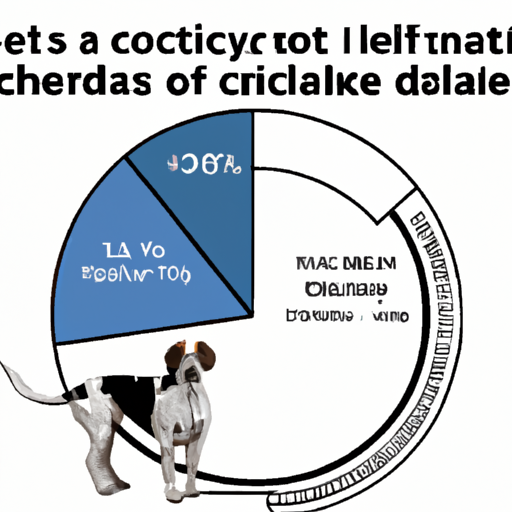Lactose intolerance is not just a human condition. Surprisingly, a significant proportion of our furry friends also suffer from this condition, although the exact percentage varies. This article aims to shed light on lactose intolerance in dogs, covering everything from symptoms to treatment.
Table of Contents
- Understanding Lactose Intolerance in Dogs
- Prevalence of Lactose Intolerance in Dogs
- Symptoms of Lactose Intolerance in Dogs
- Diagnosis and Treatment
- Frequently Asked Questions
Key Takeaways
- Lactose intolerance is common in dogs, affecting a significant proportion of the canine population.
- It is caused by a deficiency in lactase, an enzyme required to digest lactose.
- Symptoms include diarrhea, bloating, gas, and vomiting.
- It can be diagnosed by a vet and is typically managed through a lactose-free diet.
Understanding Lactose Intolerance in Dogs
Lactose intolerance in dogs occurs when a dog’s body doesn’t produce enough of an enzyme known as lactase. This enzyme is necessary for the digestion of lactose, a sugar found in milk and other dairy products. Without sufficient lactase, lactose remains undigested and ferments in the intestines, causing symptoms such as bloating, diarrhea, and gas.
You can read more about the digestion process in dogs on this page.
Prevalence of Lactose Intolerance in Dogs
While there isn’t a single, definitive percentage of dogs that are lactose intolerant, research suggests that it is a common condition. Some studies indicate that up to 50% of adult dogs may be lactose intolerant to some degree. It’s important to note that lactose intolerance is less common in puppies, as they typically produce more lactase to digest their mother’s milk. As dogs age, their ability to digest lactose may decrease.
For more insights on dog’s health and nutrition, check out this article.
| Age Group | Percentage of Dogs Likely to be Lactose Intolerant |
|---|---|
| Puppies | Less than 10% |
| Adult Dogs | Up to 50% |
Symptoms of Lactose Intolerance in Dogs
If your dog is lactose intolerant, you may notice the following symptoms after they consume dairy products:
- Diarrhea
- Excessive gas
- Bloating
- Vomiting
- Loss of appetite
- Abdominal discomfort or pain
Remember, if you observe these symptoms, it’s best to consult with a vet. You can find more information on dog symptoms on this page.
Diagnosis and Treatment
Diagnosing lactose intolerance in dogs typically involves a vet conducting a physical examination and taking a detailed dietary history. They may also perform tests to rule out other gastrointestinal disorders.
Treatment primarily involves managing your dog’s diet. If your dog is lactose intolerant, it’s best to avoid giving them dairy products. There are plenty of lactose-free alternatives available, which your vet can guide you about.
For more details on dog diet management, you can visit this link.
Frequently Asked Questions
- Can Lactose Intolerance in Dogs be Cured?
Lactose intolerance is a lifelong condition and cannot be cured. However, it can be managed effectively through dietary modifications.
- Can I Give My Dog Lactose-Free Milk?
Yes, lactose-free milk is generally safe for dogs. However, it’s always best to consult with your vet before making any changes to your dog’s diet.
- Are Certain Breeds More Prone to Lactose Intolerance?
There is no definitive research suggesting that certain breeds are more prone to lactose intolerance. It appears to be a condition that can affect any breed.
In conclusion, while lactose intolerance is common in dogs, it can be managed effectively with the right care and attention. Always consult with a vet if you notice any changes in your dog’s health or behaviour.



